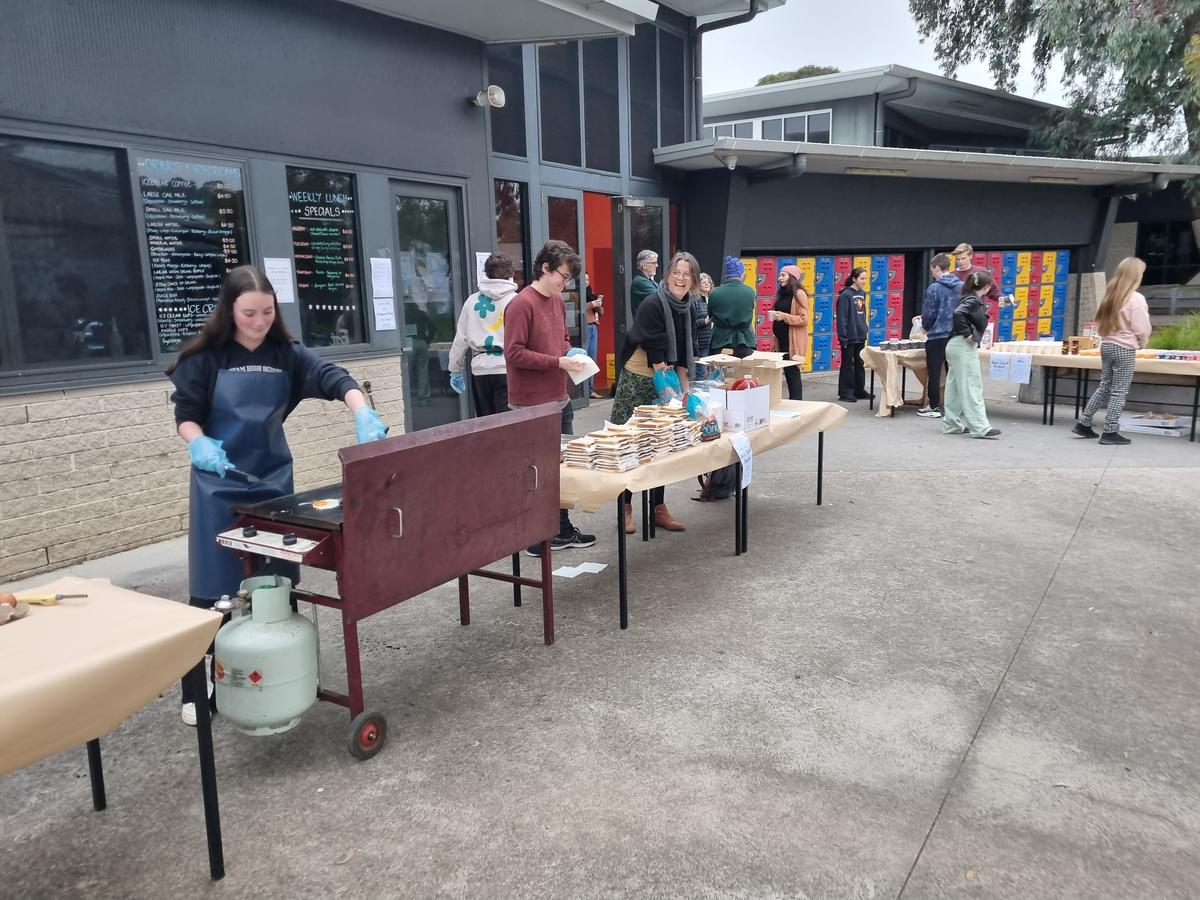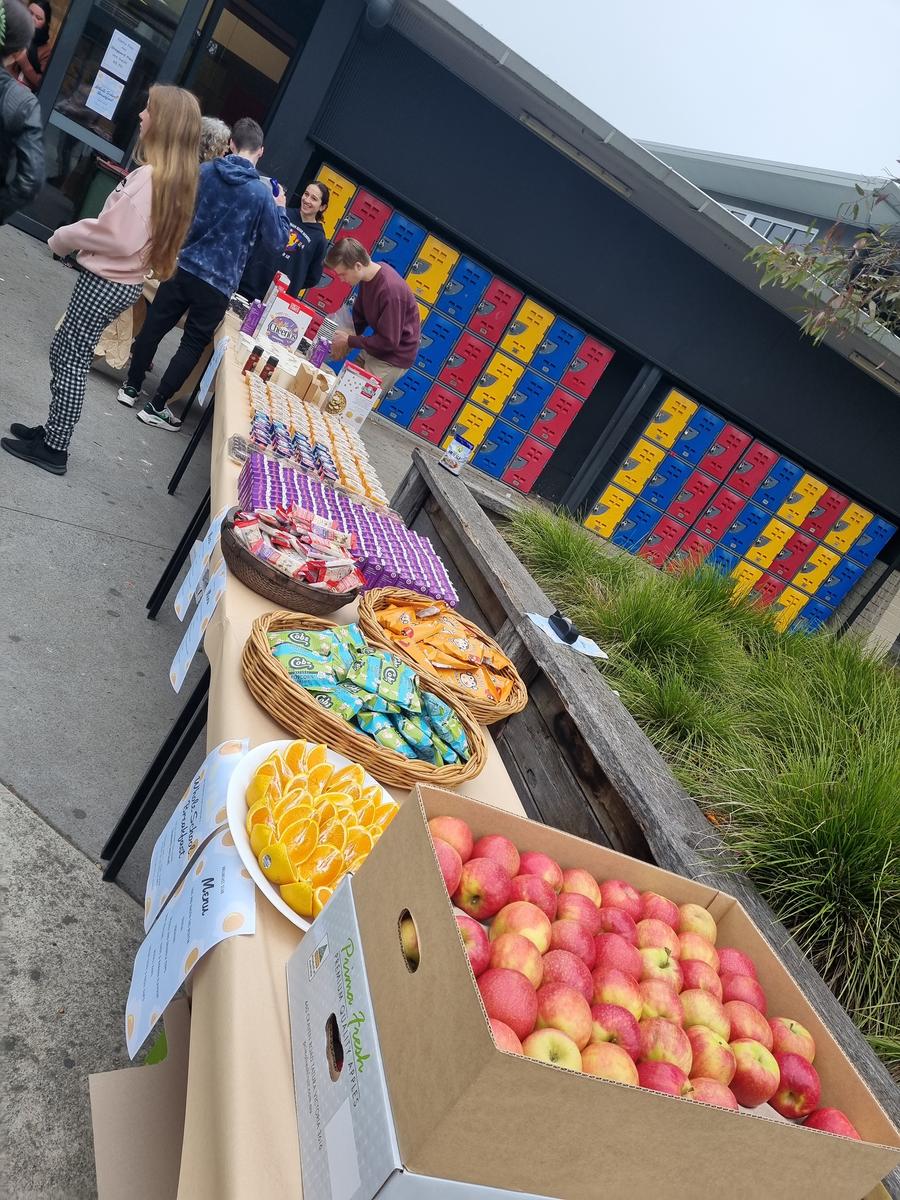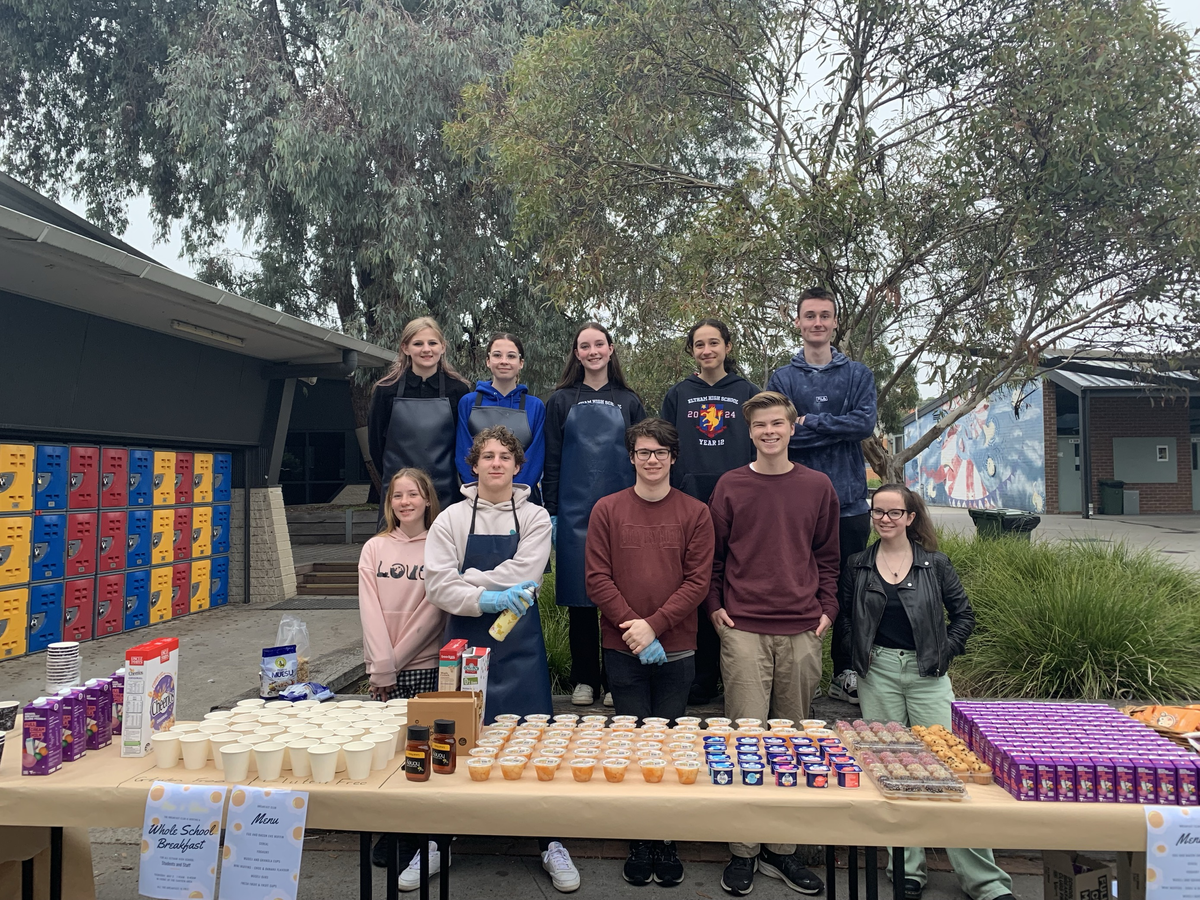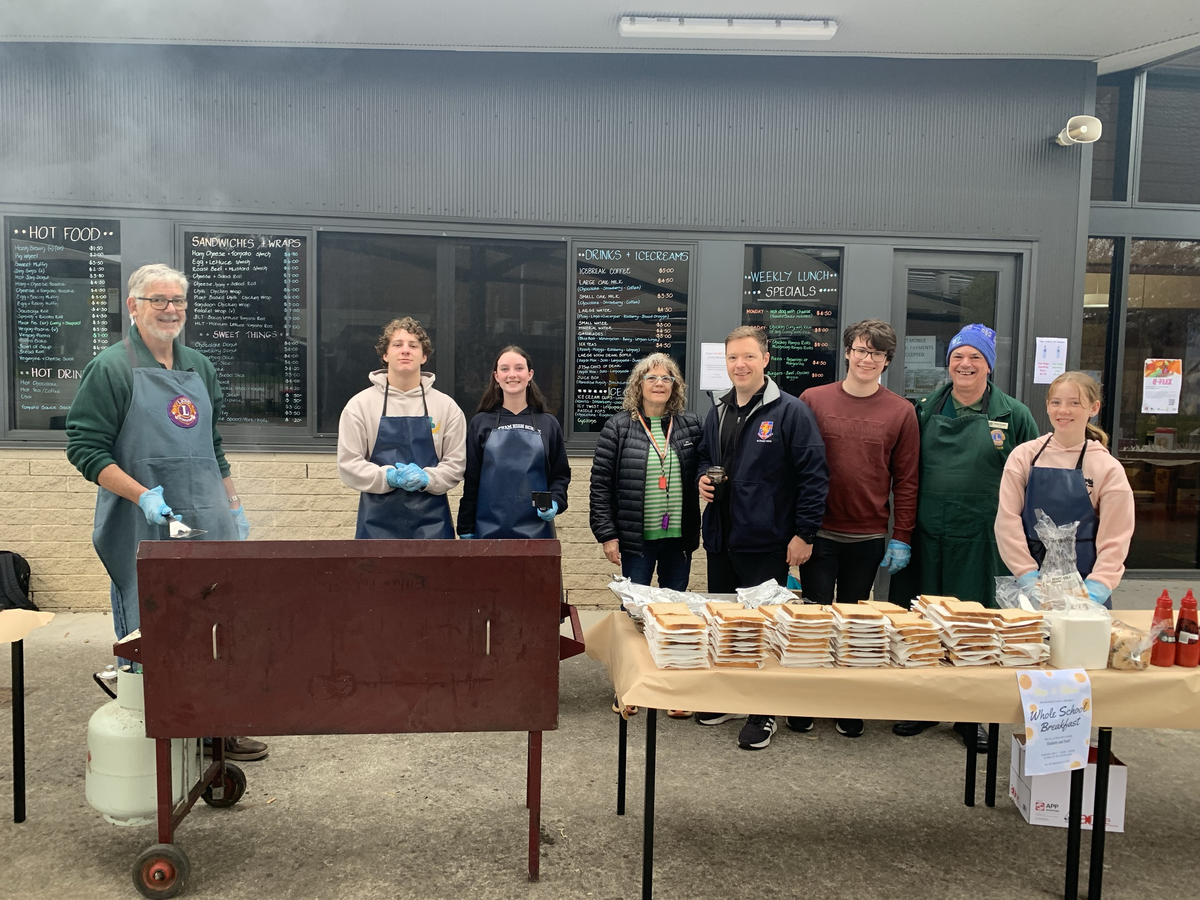Student Welbeing
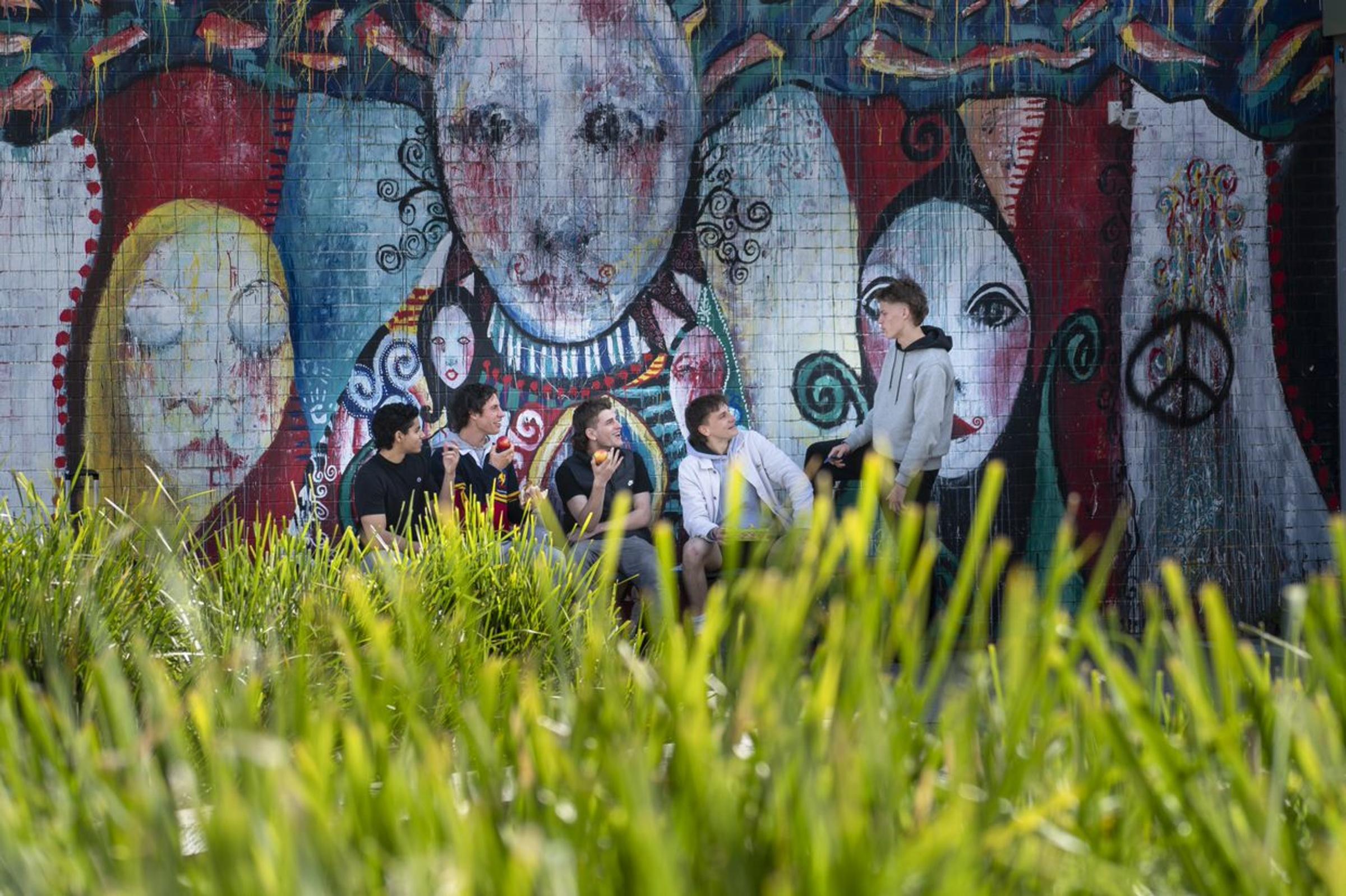
Understanding and Addressing School Refusal Behaviour - Promoting a Positive School Experience
Ensuring a positive school experience for our students is paramount in their overall development and success. However, we understand that sometimes young people may exhibit school refusal behaviour, which can be concerning for both parents, and the school. In this term's Newsletter, we will continue to delve into this issue, share insights by the most recent research within Australia and provide you, as parents, with as many additional resources required. .
What is School Refusal Behaviour?
School refusal behaviour refers to a young person’s reluctance or refusal to attend school regularly or participate in academic and social activities within the school setting. This behaviour can manifest due to various reasons, including anxiety, stress, bullying, academic difficulties, or family issues.
Research Insights
Prevalence in Australia: According to a study conducted by Kearney and Graczyk (2014) examining school refusal behaviour in Australian children, it was found that approximately 2-5% of school-aged children experience significant difficulties attending school regularly.
Risk Factors: Research by Heyne et al. (2018) highlighted several risk factors associated with school refusal behaviour in Australian children, including anxiety disorders, depression, family dysfunction, and negative school experiences.
Impact on Academic Achievement: A study by Gallé-Tessonneau et al. (2019) found that prolonged school refusal behaviour can have detrimental effects on academic achievement and long-term educational outcomes among Australian students.
Promoting a Positive School Experience
Open Communication: Encourage open communication between parents, teachers, and students to address any underlying issues contributing to school refusal behaviour. Creating a supportive environment where young people feel comfortable expressing their concerns is essential.
Early Intervention: Early identification and intervention play a crucial role in addressing school refusal behaviour. Working closely with our school or mental health professionals can help develop personalised strategies to support children experiencing difficulties.
Positive Reinforcement: Recognise and reinforce positive behaviours related to school attendance and engagement. Celebrating small victories and milestones can boost a young person’s confidence confidence and motivation to overcome challenges.
Collaborative Approach: Foster collaboration between your family and our school to develop comprehensive intervention plans tailored to the needs of your young person. By working together, we can provide holistic support and promote a positive school experience for all students.
In conclusion, addressing school refusal behaviour requires a multifaceted approach that emphasizes understanding, support, and collaboration. By implementing evidence-based strategies and fostering a nurturing school environment, we can empower our children to overcome challenges and thrive academically and socially.
References
Kearney, C. A., & Graczyk, P. (2014). A response to intervention model to promote school attendance and decrease school absenteeism. Child & Youth Care Forum, 43(1), 1-25. https://doi.org/10.1007/s10566-013-9218-1
Heyne, D., Gren-Landell, M., Melvin, G., Gentle-Genitty, C., & Pahnke, J. (2018). Differentiating between school attendance problems: Why and how? Cognitive and Behavioral Practice, 25(3), 302-317. https://doi.org/10.1016/j.cbpra.2017.05.007
Gallé-Tessonneau, M., Vernhet, C., Journiac, K., Fourcade, S., & Berthelon, C. (2019). School refusal: A cohort study in children aged 5-12 years. Archives de Pédiatrie, 26(5), 284-290. https://doi.org/10.1016/j.arcped.2019.06.002
State Schools' Relief Funding
State Schools' Relief is keenly aware that the cost of living continues to affect so many families across the state. So, to further support Victorian students in government schools they have secured a limited supply of textbook vouchers to assist with these rising costs. However, the vouchers look a little different from the way they have in the past.
Key differences to note:
Vouchers are for $150.00.
Vouchers are for use at Campion stores only (both in store and online)
All vouchers have a 3-year expiry date.
Vouchers will be supplied in hard-copy and sent directly to the school for distribution to students.
To provide support to as many students as possible, there will be a limit of one voucher, per student.
Please reach out to the Student Services team if you would like to apply for this.
Term 3 – Tri Tactics Choices Program for 20 EHS Middle School Students.
This year, we've recognized the importance of supporting our male-identifying students as part of the wellbeing efforts we're undertaking through Student Services. Thanks to the School Focused Youth Funding, we've chosen a program tailored to benefit 20 male identifying students in Year 8 and 9.
Program Information: https://www.tritactics.com.au/choices-emotional-awareness-self-defence.
Objectives:
- Understanding emotions
- Defusing potential situations
- Self-awareness, being assertive and confident.
- Learning about options, choices, and consequences
- Creating respectful relationships
- Conflict resolution
- Avoiding potentially difficult situations
- Prevention & easy steps to identify one’s vulnerability.
- Personal boundaries and limitations
- Intention, Ability, Opportunity
If you believe your young person would be interested and benefit from this program, please email their Coordinator and Student Services Leader, Madeline Gaitanis. Please have your EOI sent by June 10.
Key Contact:
Madeline Gaitanis, Student Services Leader
Email: madeline.gaitanis@education.vic.gov.au
Operation Newstart Northern - Enhance Leadership Program
Operation Newstart will be taking a max of 8 students on a 5-week intensive leadership program. This program is aimed at young people who have a positive connection to school and would benefit from short term Leadership Program. Young people from all backgrounds and experiences are welcome and will undergo an interview process before admission.
Website: https://www.opnewstart.org/single-post/upcoming-enhance-program-term-3
Student referrals would ideally be within school years of 9 - 10 and are keen to get involved with the community and build on their personal skills. Please see the brochure and program outline for additional information. Students will still be expected at schools before and after the program and on Monday and Tuesdays during the program.
If you believe your young person would be suitable for this program, please reach out to Student Services and we can support an application form.
Key Contact:
Brendon Delaney, Program Facilitator
Email: Brendan.Delaney@education.vic.gov.au
Phone: 0438 043 103
Whole School Breakfast Club
On Thursday, May 2, Student Services, along with the Lions Club, our student leaders and dedicated teaching staff, hosted another whole school breakfast club!
The heartwarming success of our Breakfast Club Program allowed our school community to come together to enjoy each other's company and share a vital meal. The sight of students, teachers, and staff gathered around, laughing, chatting, and savouring nutritious meals was truly inspiring. It was more than just a meal; it was a celebration of unity, compassion, and support within our school community.
The benefits of the Breakfast Club
In our commitment to ensuring every student can thrive, regardless of their circumstances, we understand the crucial role nutrition plays in a child's ability to learn and grow. Research consistently shows that hunger can significantly impact a child's concentration, self-regulation, and overall academic performance.
With the rising cost of living, many families, especially those facing financial hardship or disadvantage, find it increasingly challenging to provide enough healthy food for their children. This reality underscores the importance of programs like the School Breakfast Clubs in bridging the gap and ensuring all students have access to nutritious meals that fuel their minds and bodies.
By offering free and healthy food for students, our Breakfast Club Program aims to alleviate the burden on families while empowering students to thrive academically. By starting their day with a nutritious meal, students can concentrate better in class, engage more fully in their learning, and develop the skills they need to succeed both inside and outside the classroom.
EHS Breakfast Club Details
When: Every Tuesday, Wednesday, and Thursday
Time: 8:10am – 8:45am
Where: Room 413
Parent Workshop
Nillumbik Youth have partnered with LifeConnect to deliver Reach Out and Connect, a free online suicide prevention training for parents and carers. Topics covered in this session include:
- Understanding suicide, recognising the warning signs
- Strategies for how to initiate conversations on suicide with your young person including how to create a supportive environment and provide support and validation.
- How to connect with further resources and professional help.
Key Details:
Date: Thursday 16 May
Time: 7:00 - 8:30pm
Location: Online via Zoom
Cost: Free!
For further information and to register please visit: https://events.humanitix.com/reach-out-and-connect-suicide-conversations-for-parents-and-carers
MADELINE GAITANIS, Student Services Leader

